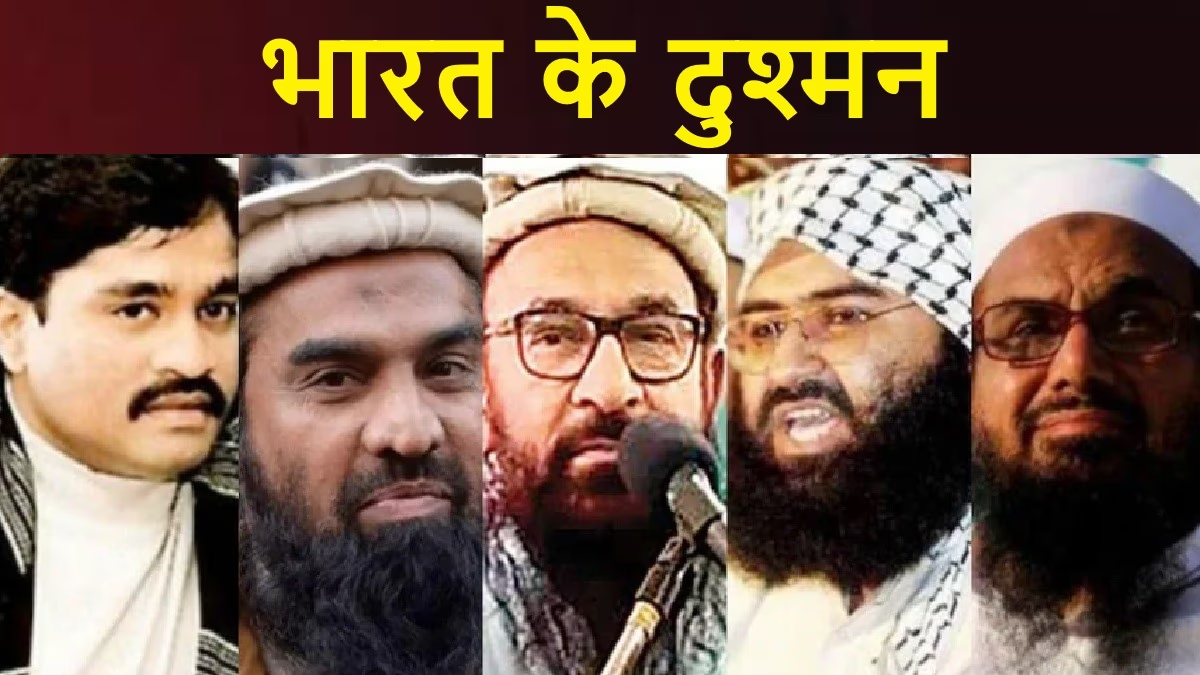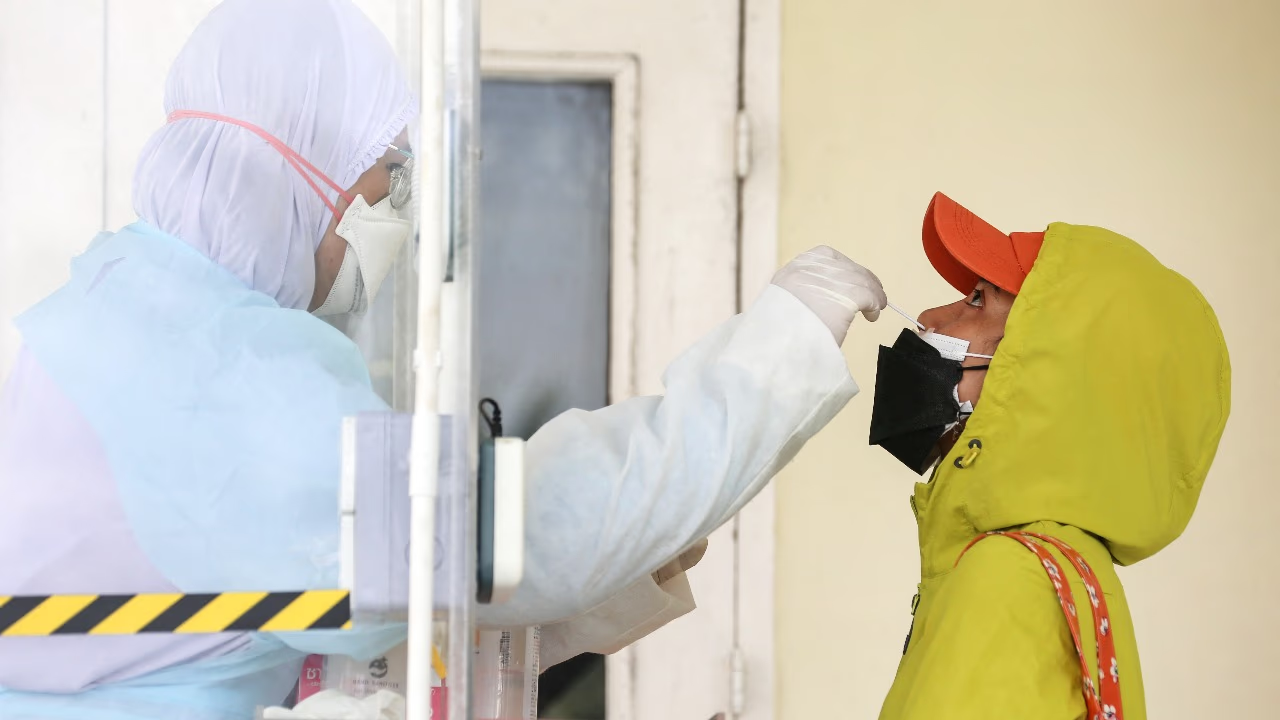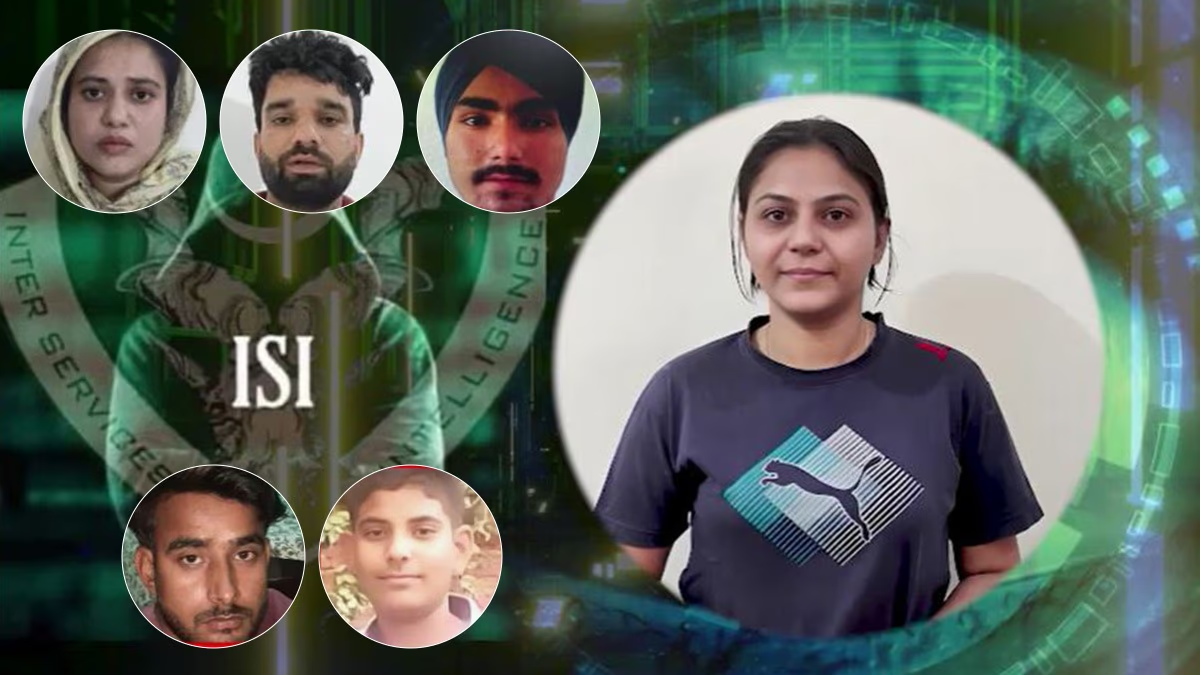India's Most Wanted Terrorists:
After the Pahalgam attack, India has significantly destroyed several terrorist strongholds within Pakistan. During the night of last Tuesday-Wednesday, Indian airstrikes obliterated nine Lashkar, Jaish, and Hizbul sites in Pakistan, breaking the backbone of these terrorist organizations. Pakistan harbors not just one or two enemies but many who are constantly plotting against India. Let’s uncover which of India's most wanted terrorists are taking refuge in Pakistan today.
Terrorist Hafiz Saeed
Born on June 5, 1950, in Punjab, Pakistan, Hafiz Saeed is the head of the terrorist organizations Lashkar-e-Taiba and Jamaat-ud-Dawa. The United Nations declared him a global terrorist on December 10, 2008. Hafiz Saeed has orchestrated numerous terrorist attacks in India, including the Red Fort attack on December 22, 2000, the Rampur CRPF camp attack on January 1, 2008, the heinous Mumbai attack on November 26, 2008, and was involved in the ambush on a BSF convoy on August 5, 2015, in Jammu and Kashmir. Hafiz Saeed is also accused of plotting terror activities in Jammu and Kashmir and being involved in terror funding. In April 2022, a Pakistani court sentenced Hafiz Saeed to 31 years in prison, allegedly to avoid being blacklisted by the Financial Action Task Force.
Terrorist Masood Azhar
Born on July 10, 1988, Masood Azhar operates the Jaish-e-Mohammed terrorist organization from Pakistani soil, known for executing several attacks on India. On May 1, 2019, the United Nations declared Masood Azhar a global terrorist. Attacks directed by Jaish include the October 2001 Jammu and Kashmir Legislative Assembly attack, the December 2001 Parliament attack, and the January 2016 Pathankot attack. A devastating attack on a CRPF convoy in Pulwama on February 14, 2019, led to 40 soldiers' martyrdom and prompted India's retaliatory Balakot airstrike on Jaish's base.
Terrorist Zaki-ur-Rehman Lakhvi
A close aide of Hafiz Saeed, Zaki-ur-Rehman Lakhvi is a commander and founding member of Lashkar-e-Taiba. He played a key role in the 26/11 Mumbai attacks. The United Nations declared Lakhvi a global terrorist in December 2008. Alongside Hafiz Saeed, Lakhvi was involved in the Red Fort and Rampur attacks, as well as the assault on a BSF convoy. Due to his role in the Mumbai attack, an Interpol Red Corner Notice was issued in August 2009. The United Nations indicates that Lakhvi resides in Islamabad and the Okara district of Pakistan.
Terrorist Zafar Iqbal
Known as Jamaluddin, Zafar Iqbal hails from Jammu and Kashmir but currently resides in Pakistan. Born on October 4, 1953, the United Nations lists him as a global terrorist. He resides near Masjid al-Qudsia in Lahore. Zafar Iqbal has orchestrated numerous terrorist attacks in India, particularly in Jammu and Kashmir. He commands the terrorist faction Harakat-ul-Jihad-al-Islami, which is banned in India.
Terrorist Syed Salahuddin
Known as the chief of Hizbul Mujahideen, Syed Salahuddin was recently seen attending the burial of terrorist Imtiaz in Rawalpindi. Imtiaz, a Jammu and Kashmir native associated with Hizbul Mujahideen, was assassinated in Pakistan by an unknown gunman. The Indian government has declared Imtiaz Alam a terrorist under UAPA provisions.
Underworld Don Dawood Ibrahim
Born on December 26, 1955, in Mumbai, Dawood Ibrahim is notorious not only in India but across various countries for orchestrating terrorist attacks, funding terrorism, smuggling arms and drugs. In March 1993, Dawood and his associates executed a series of bombings in Mumbai, resulting in 257 deaths and over a thousand injuries. Following these attacks, Dawood fled India. In 2003, the United Nations included Dawood Ibrahim in the global terrorists list. Despite India's repeated evidence to Pakistan regarding Dawood's presence in Karachi, Pakistan has consistently denied it until confirming in August 2020. Dawood reportedly resides in a building known as 'White House,' house number 37-30, Street. However, Pakistan retracted its statement the following day.
Terrorist Abdul Rehman Makki
Born on December 10, 1954, Abdul Rehman Makki resided near the Tayyiba Markaz in Punjab province, Pakistan. In January 2023, the United Nations declared Abdul Rehman Makki a global terrorist. He was the brother-in-law of Hafiz Saeed and served as the deputy chief of Lashkar-e-Taiba. Makki was also the head of Jamaat-ud-Dawa's political wing and held the reins of Lashkar's foreign relations department. He was responsible for raising funds for Lashkar, recruiting terrorists, radicalizing youth for violence, and planning attacks in India, especially Jammu and Kashmir. In December last year, Abdul Rehman Makki passed away due to a heart attack in Lahore, Pakistan.
Over 150 Terrorist Organizations in Pakistan
Pakistan harbors some of the world's most unsparing terrorists, with many using Pakistani soil to plot against India. Former U.S. President Joe Biden once declared Pakistan as the world's most dangerous country, igniting a backlash from Pakistan's media, military, and Prime Minister. The United Nations Security Council has listed over 150 terrorist organizations and operatives in Pakistan as global terrorists.
Massive Bounties on Several Terrorists
On November 26, 2008, a dreadful terrorist attack unfolded in Mumbai. Ten terrorists infiltrated the city, targeting locations like railway stations, hotels, and bars, including the Taj Hotel and Oberoi. This terror rampage lasted for 60 hours, claiming 166 lives. Nine terrorists were neutralized; Ajmal Kasab was captured alive and executed on November 21, 2012. Hafiz Saeed was identified as the mastermind behind these attacks.
The 2012 attacks led the U.S. to place a $10 million bounty on Hafiz Saeed. Hafiz Saeed has been condemned by the United Nations Security Council and enlisted as a global terrorist. This designation requires substantial evidence of involvement in terrorist activities.
India has also branded Hafiz Saeed as a terrorist, listing him among the National Investigation Agency's most wanted. The Ministry of Home Affairs identified 54 individuals under UAPA for terrorism, six of whom also appear on the United Nations' global terrorist list, which also divulges their Pakistani addresses.




